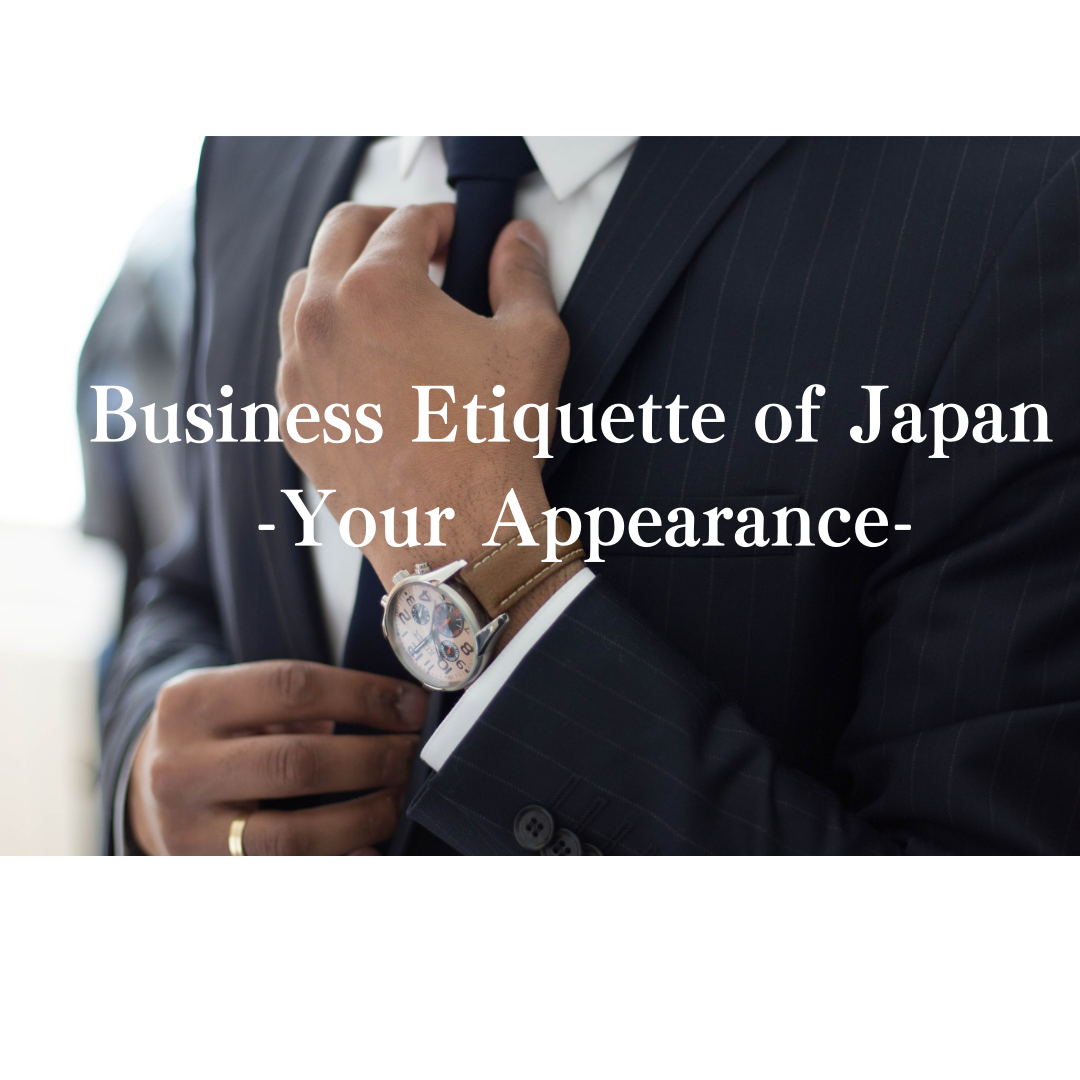If you have ever worked with Japanese people, you have probably seen people look (maybe overly) neat and tidy, wearing suits with neatly cropped hair.
So how should you look when working with Japanese people to make sure you work with them smoothly?
In this article, the standard of Japanese businessmen regarding their appearances, especially clothing and hair, will be introduced.
If you hope to start working for a Japanese company and construct a good relationship with a future business partner located in Japan, this article is for you!
Why the Japanese are so particular about their appearances
It might seem odd for those of you with different values to be particular about appearances as much as the Japanese are.
So, why ARE the Japanese so particular about their appearances in the first place?
It is a way to look professional, trustworthy, and reliable for their business partners thus leading to smoother negotiations.
Your looks are thought of as a representation of yourself.
The Japanese understand that looks do not necessarily define a person, but nevertheless, looks play a big part in someone’s impression of someone else in Japan.
Key factors of appearances
The Key factors are clothing and hair.
In the following paragraphs, the standards for clothing and hair will be introduces.
- Clothing (Men)
It has become less formal over the years but these are the rules to follow if you would like to be polite.
- Suit (about 30,000 yen at the least) and tie
- Details on suit :
charcoal gray, or navy blue unpatterned or striped
Nothing too low quality
(Black is acceptable but it is thought of as something for more formal occasions such as weddings and funerals.)
- Details on ties :
anything not so
- Details on shirt :
white or pale blue, button down with collar, long sleeved
(If you would like to be on the safe side, unpatterned.)
- Details on Winter coat :
Simple, Black, Navy blue or Dark Gray
- Details on shoes :
laced or monk strap shoes (No loafers nor deck shoes)
Black or Brown
- Details on socks :
Black, Navy blue or gray
should cover your ankles at around crew length
- Details on belts :
the same color as your shoes.
- Details on bags :
should be able to stand on their own. (You will be placing it on the floor during meetings)
Black, brown, navy blue or dark brown.
A simple designed bag, big enough to fit A4 size documents and your PC
- Clothing (Women)
As it has become for men, it is actually even more casual for women.
In this article, the most formal wear will be introduced.
- Suit (can be pants and skirt)
- Details on suit :
Black, Navy blue or Charcoal gray nothing with patterns that stand out too much
can be pants and skirt
pants should be full length
skirt length should cover your knees halfway when standing and should not rise more than 10 cm above your knees when sitting down
- Details on top :
Shirt or Blouse
pale colors such as white, pale blue or pale pink
- Details on shoes : close toed pumps
3 – 5 cm high
relatively thick heels that make heels easier to walk in
black
No sandals or mules
- Details on bag:
should be able to stand on its own
black, Navy blue dark gray or brown
Simple, plain with no decoration
big enough to fit A4 size documents and your PC
- Hair and others (Men)
- short, neatly cropped hair
- No beard
Avoid wearing too much aftershave or Cologne
- Natural or Natural looking hair color (Most Japanese businessmen have black or brown hair.)
- (If your hair is long, you should pull it up into a ponytail, but short hair is highly recommended.)
- Avoid bringing brightly colored things
- No makeup is needed.
- Hair and others (Women)
- short hair that does not reach your shoulders or if your hair does reach your shoulders, pull them up into a ponytail
- Natural or Natural looking hair color (Most Japanese businessmen have black or brown hair.)
- Avoid wearing too much perfume.
- Avoid bringing brightly colored things
- Tips on makeup
Keep your colors neutral, nothing too bright or intense
Do not put on too much makeup, but enough so that people can see you made an effort. No makeup can be taken as lazy or disrespectful.
Recent Changes in appearances
Japanese business etiquette regarding clothing is changing.
Here are a few changes that you may find in Japan.
- Cool Biz (No tie rule)
The Cool Biz was started as a rule in the early 2000s, by then Prime-minister Koizumi. It allowed those working for the government to not wear ties to reduce energy usage of air conditioners. It was later applied to some Japanese companies and far more people don’t wear ties anymore during summer than before. However, if it is your first time doing business with a Japanese company, I suggest you wear a tie, just to be on the safe side. It is better to wait and see how your partner does things.
- Japanese women tend to wear business casual clothing
A lot of women wear suits but some women wear clothes that the Japanese like to call, “business casual”, which is something more casual than suits but formal enough to look professional. The problem with this fashion is, for those of you not used to Japanese business scenes, it is hard to tell what is too casual and what is not. As is with cool biz, you should wear a suit for your first meeting and see how your partner does things in their company.
Closing
What did you think reading this article?
Maybe you thought the Japanese are far too formal. Maybe you like their business etiquette.
I sincerely hope this article will help you negotiate with Japanese companies smoothly or help you adapt smoothly when you start working in one.
I hope you have a good experience working with Japanese people in general.
If you would like to learn more about Japanese business etiquettes, read this article!
References
- “Business Attire”, retrieved 2021/12/12
- “The Japanese Office Dress Code” by Michael Lambe retrieved2021/12/12
- “Secrets of Japanese business etiquette” retrieved 2021/12/16


